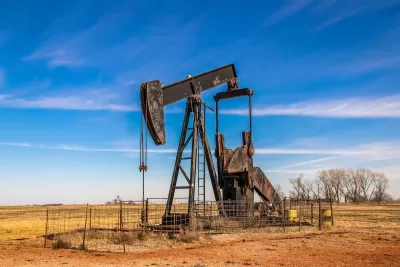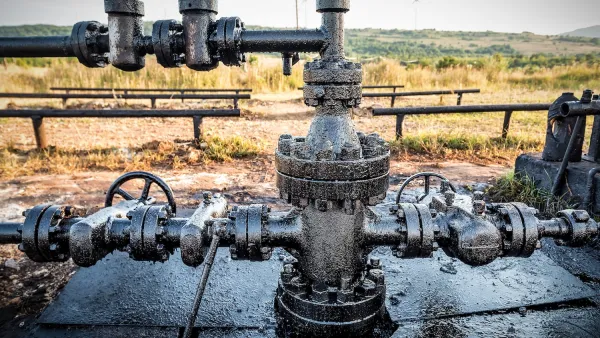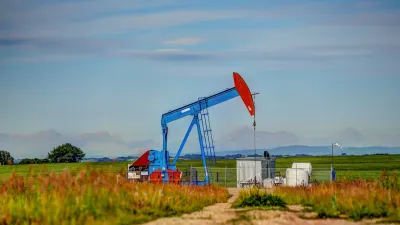An Environmental Liability Tax (ELT) on oil extraction would fund orphaned well cleanup, shift financial responsibility to oil companies, and address the environmental and public health risks posed by abandoned wells.

The United States faces a significant crisis with orphaned and uncapped oil wells, which number between 310,000 and 800,000 according to the Interstate Oil and Gas Compact Commission. These wells, often abandoned without an owner to take responsibility, pose severe environmental and public health risks, including methane leaks and groundwater contamination. Despite efforts like the Department of the Interior’s plugging of 9,000 wells in 2024, the scope of the problem far exceeds current funding and mitigation measures. The Bipartisan Infrastructure Law allocated $4.7 billion to address the issue, but cleanup costs, which range from tens of thousands to millions per well, demand a more sustainable and systemic solution.
As reported by Andrew Leahey, at the heart of the crisis is a combination of regulatory loopholes and cost-shifting practices in the oil and gas industry. Aging wells are frequently sold to smaller, precarious operators who lack the financial capacity to cap or remediate them, often leaving taxpayers to shoulder the burden when these companies declare bankruptcy. Current bonding requirements intended to ensure cleanup funds are insufficient, typically covering less than 2 percent of actual costs. This financial shortfall exacerbates the problem as the nation’s oil reserves dwindle and the industry faces reduced resources to address these liabilities.
An Environmental Liability Tax (ELT) offers a feasible and enforceable solution by requiring oil and gas companies to pay a per-barrel fee at the point of extraction. These funds would be placed in a managed trust exclusively for well capping, site remediation, and land restoration. The ELT would shift financial responsibility back to the entities profiting from resource extraction, eliminate the need to track down bankrupt operators, and reward companies maintaining high environmental standards through tax credits. By creating a predictable funding stream, an ELT could address the orphan well crisis more effectively while promoting accountability and environmental stewardship in the oil and gas sector.
FULL STORY: Towards An Environmental Liability Tax For Oil And Gas Wells

Planetizen Federal Action Tracker
A weekly monitor of how Trump’s orders and actions are impacting planners and planning in America.

DARTSpace Platform Streamlines Dallas TOD Application Process
The Dallas transit agency hopes a shorter permitting timeline will boost transit-oriented development around rail stations.

Congressman Proposes Bill to Rename DC Metro “Trump Train”
The Make Autorail Great Again Act would withhold federal funding to the system until the Washington Metropolitan Area Transit Authority (WMATA), rebrands as the Washington Metropolitan Authority for Greater Access (WMAGA).

Supreme Court Ruling in Pipeline Case Guts Federal Environmental Law
The decision limits the scope of a federal law that mandates extensive environmental impact reviews of energy, infrastructure, and transportation projects.

Texas State Bills to Defund Dallas Transit Die
DART would have seen a 30% service cut, $230M annual losses had the bills survived.

Bikeshare for the Win: Team Pedals to London Cricket Match, Beats Rivals Stuck in Traffic
While their opponents sat in gridlock, England's national cricket team hopped Lime bikes, riding to a 3-0 victory.
Urban Design for Planners 1: Software Tools
This six-course series explores essential urban design concepts using open source software and equips planners with the tools they need to participate fully in the urban design process.
Planning for Universal Design
Learn the tools for implementing Universal Design in planning regulations.
Roanoke Valley-Alleghany Regional Commission
City of Mt Shasta
City of Camden Redevelopment Agency
City of Astoria
Transportation Research & Education Center (TREC) at Portland State University
US High Speed Rail Association
City of Camden Redevelopment Agency
Municipality of Princeton (NJ)





























